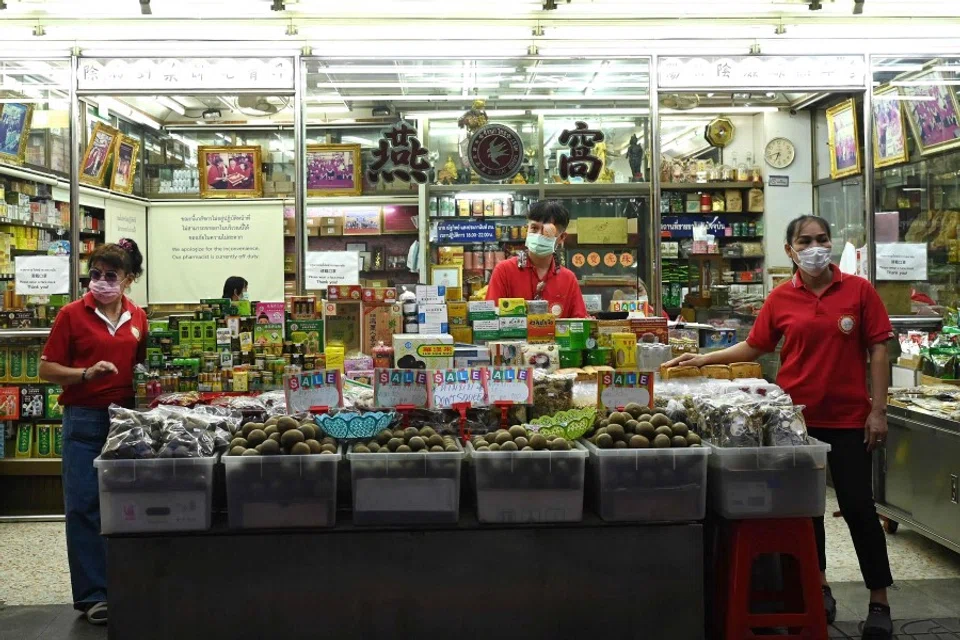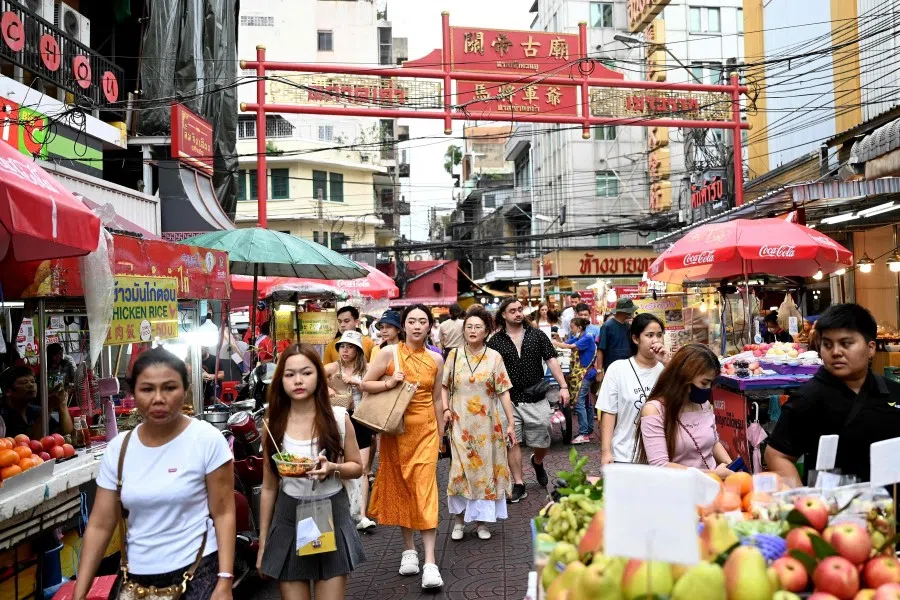Tackling the illicit use of Thai business nominees by Chinese networks
Illicit nominations of Thais as shareholders in businesses run by Chinese operators are threatening local concerns. This highlights a dense network of transnational criminal activity that the Thai authorities are up against.

The controversial existence of enterprises registered as Thai ones but which are essentially foreign-funded and operated has gained attention due to the escalating adverse impact on Thai society and businesses. Activists and politicians have disseminated details on this matter.
Under Thai law, a Thai corporation's shareholders must comprise at least 51% of Thai citizens. Otherwise, it will be considered a foreign enterprise subject to certain restrictions that do not apply to Thai businesses. Even though the Foreign Business Act (FBA, 1999) prohibits the use of Thais as nominee shareholders by foreigners, businesses registered as Thai enterprises are still being operated by foreigners using foreign funds - that is, they are foreign-controlled nominated businesses.
... around half of the fruit agencies in Chanthaburi province - the country's largest base for fruit plantations - is owned by Chinese-nominated firms.
Chinese-nominated businesses affecting local small firms
Nominated businesses in Thailand have existed for decades. One prominent example is Chinese business nomination in the export-oriented fruit industry. The export volume of fruit products from Thailand to China has risen dramatically from US$78 million in 2003 to US$4.9 billion in 2022. The number of fruit trade agencies in Thailand has correspondingly increased from 398 in 2015 to 1,590 in 2019. According to a study on fruit dealers given to the Thai Senate Council (in 2016), around half of the fruit agencies in Chanthaburi province - the country's largest base for fruit plantations - is owned by Chinese-nominated firms.

The biggest disadvantage of such illicit business nomination in the agricultural industry is the demise of smaller local businesses that are unable to compete with these firms due to the market advantages, higher financial capacities, and advanced technological capabilities of Chinese entrepreneurs.
... spending by such zero-dollar tour groups does not benefit Thailand or Thai business owners because all the associated firms are largely owned by Chinese individuals or entities.
The problem of foreign-controlled nominated businesses also affects local entrepreneurs in the service sector through "zero-dollar tourism", available in Thailand since the 2000s. Zero-dollar tourism refers to low-cost package tours that include visits to over-priced souvenir and jewellery businesses actually owned and operated by the same Chinese business network in collaboration with Thai counterparts.
Anonymous entrepreneurs of tourism associations interviewed by the author in 2020 claimed that spending by such zero-dollar tour groups does not benefit Thailand or Thai business owners because all the associated firms are largely owned by Chinese individuals or entities.
Zero-dollar tourism was widely discussed in 2016 and 2018 when tourism operators in Phuket were accused of business nomination, hiring illegal tour guides and tourist fraud. In 2018, then Deputy Prime Minister Prawit Wongsuwan criticised Chinese tour operators for a boat accident that killed 46 Chinese tourists in Phuket. He declared that "the Chinese utilise[d] Thai nominees to operate the firms... violating rules and causing the accident". His statement went viral on Chinese social media, with many Chinese accusing Prawit of making an irresponsible statement.

There have been attempts to punish offenders for using foreign business nominees. However, tracking such illegal enterprises is difficult because the offenders frequently misuse the identities of close relatives, such as their spouses.
No cases of illicit business nomination resulted in a conviction.
Since 1999, while 1,244 violations of the FBA were reported, most of these were for minor infractions like failing to renew approval certificates. No cases of illicit business nomination resulted in a conviction. While a zero-dollar tour operator was arrested in Phuket in 2016, the defendants were accused of deceiving tourists and money laundering, not prosecuted under the FBA.
Foreign nightclubs under the spotlight
This illicit use of Thai business nominees by Chinese networks has grown out of control. This was brought to light during an investigation of foreign-owned nightclubs in late 2022.
On 26 October 2022, the authorities raided a hidden bar called Jin Ling in Bangkok. Several people were arrested for drug peddling; 104 of 266 Chinese tourists caught in the bar tested positive for drug use. During the investigation, authorities exposed a multinational network for drugs, gambling, and foreign business nomination.
Thai police detained 15 people, including four Thais and 11 Chinese citizens. Police also seized assets totalling more than 300 million baht (about US$ 8.3 million). Lin Yan, a Chinese detainee, was charged with conducting a fraudulent enterprise using a fake Thai identification card while Du Hao (alias Chaiyanat Kornchayanant), the accused bar owner, turned himself in on 23 November 2022 but denied all charges.
The broader crackdown on similar Chinese-owned nightclubs is known as the "Gray Chinese Capital" investigation. Its scope has grown to include smuggling, illegal overstays, and the production of fraudulent identification cards. These crimes are related to corrupt behaviour by Thai officials.
For instance, there are Chinese who register as Thai citizens by stealing the identities of dead Thais or of those who live in remote areas. Additionally, some Chinese use incorrect visas, notably student visas, to reside unlawfully in Thailand. Without the assistance of corrupt public servants, these crimes would be more difficult to commit.

Chuwit Kamolvisit, a former politician with a background in the nightclub industry, is a key figure exposing information about these syndicates, drawing the attention of Thai society. The issue gained wider notice when, during a no-confidence vote on 16 February 2023, Rangsiman, a member of parliament, raised the issue of foreign gangsters' connections to Thai politicians.
The presence of illegal Chinese businesses in numerous industries hurts Thailand's economy and image.
The Chinese embassy in Bangkok announced on its Facebook page that the Chinese government was committed to work with Thailand to crack down on illegal transnational networks and the suspected illegal activities of some Chinese subjects in Thailand.
The presence of illegal Chinese businesses in numerous industries hurts Thailand's economy and image. This leads to the loss of revenue from legitimate foreign companies and opportunities for Thai entrepreneurs to grow their businesses; it also shows the Thai government to be incapable of controlling the entry and presence of foreign offenders.
In the past, Chinese individuals were arrested for similar crimes. Thais are now curious about how these illicit foreigners live, do business and get rich in Thailand. Are the police, immigration and other relevant authorities seriously carrying out their duties?
The new government must quickly resolve the issue to restore the confidence of the Thai public. A starting point would be to combat corruption in the immigration division, the first line of defence against illegal overstayers and identity theft. Any government employee found to be abetting such crimes must be penalised.
Another step would be to vigorously investigate suspected corporations to prevent illicit business nominations. Finally, the digitisation of Thailand's taxation and invoicing systems might make it easier to trace unusual financial flows and links to foreign shareholders.
This article was first published by ISEAS - Yusof Ishak Institute as a Fulcrum commentary.
Related: The nature of recent Chinese migration to Thailand | China's young families sending kids to international schools in Thailand | An imagined China and feeling Chinese in Thailand | Chinese tourists return to Thailand on 'zero-fare tours', and locals aren't happy | New Chinese migrants forming parallel communities in Chiang Mai





